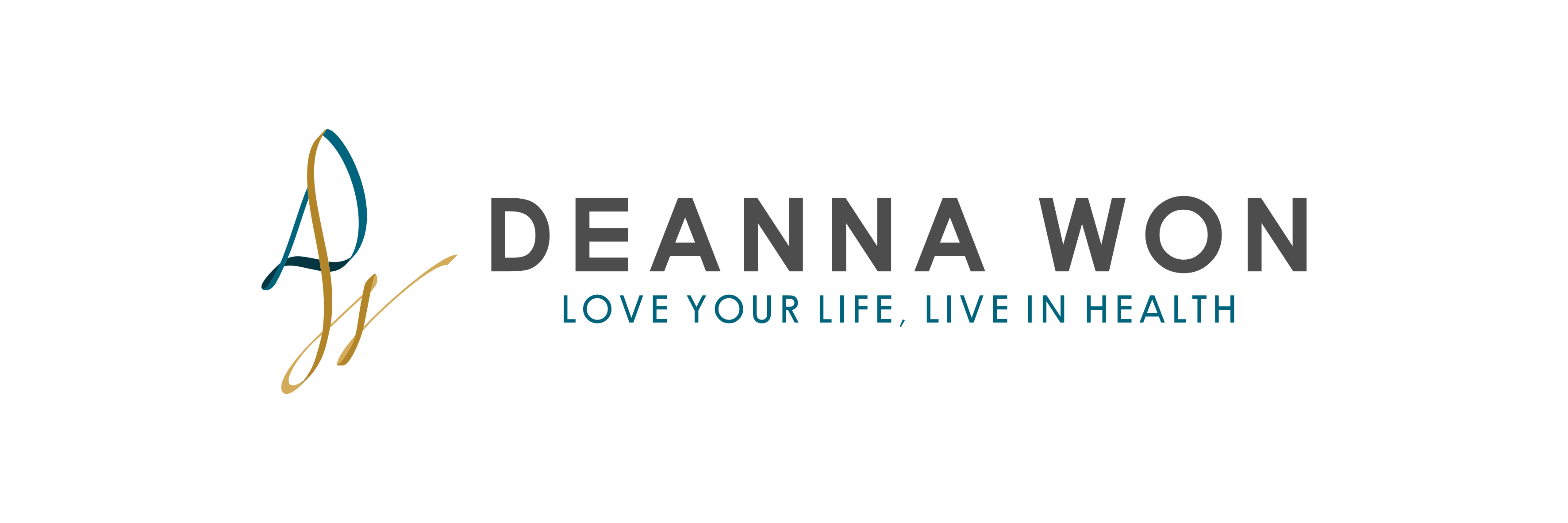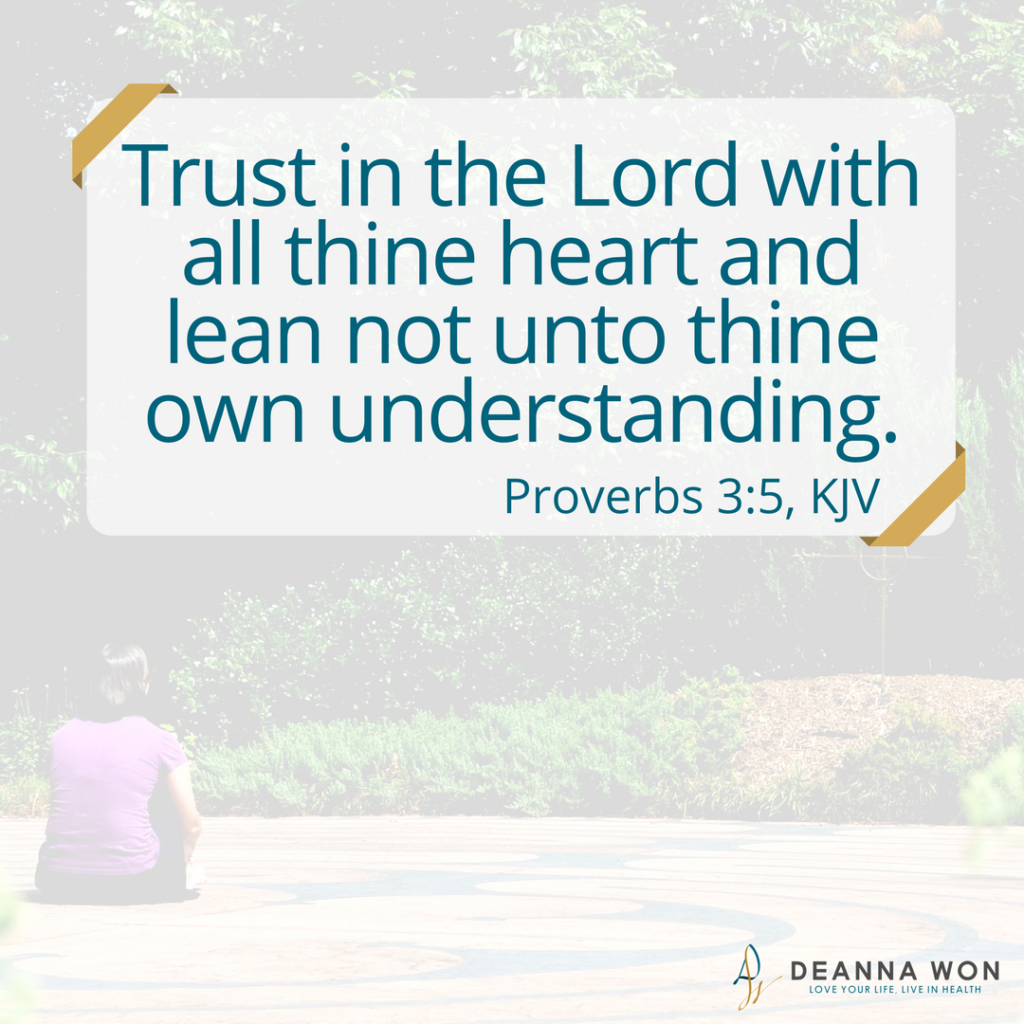There’s a much larger aspect of healing that may be overlooked for some. When you’re diagnosed with a life-threatening condition, where does your focus toward when you think about treatment to recover? Do you start working at the physical aspects of your health first? That may be the most obvious and the easiest because we live in physical bodies where, if there are physical symptoms, they can easily become the focal point of our efforts to heal.
When I was diagnosed with ovarian cancer, the first thing that I focused on was nutrition. With a background in science, it was not a hard stretch for me to understand that what I put into my mouth would impact the cells in the body. So, I began to research extensively into the healing properties of foods in order to incorporate them into my life. While I witnessed amazing changes within a relatively short period of time that let me know that I was on the right track, because I returned to the same fast-paced lifestyle and work habits that had led me to developing cancer, it did not take long for the healing to turn in the opposite direction.
At this point, I knew that I had to dig deeper, which included healing on an emotional level to release difficult emotions that had been suppressed and repressed that resided deep within the cells of my body. As I continued to work through the layers of my existence, I knew that my faith would play a large, if not the largest, role that would guide me through the decisions that would have to be made with regard to my treatment.
Three years before I even knew that I would be diagnosed with ovarian cancer, I decided to browse for some books at the Pentagon bookstore. Little did I know that the sales clerk would urge me to buy a book as soon as I entered. The name of the book—“The Hallelujah Diet: Experience the Optimal Health You Were Meant to Have” by George Malkmus. Back then, I had already been a certified fitness instructor for 8 years and, being in the military where we were tested routinely for fitness and health, I felt that I was healthy. I also didn’t believe in diets, because for me, it was more lifestyle than going on these “yo-yo” diets of being on a diet, and then being off of the diet. However, something in the “Hallelujah” part of the title intrigued me, which, together with the enthusiasm of the clerk, eventually won me over to purchasing the book.
That night, I could not put the book down, as I read about how George Malkmus was able to completely heal from colon cancer a year after he had changed his diet to an organic, raw vegan one. I was so impressed that I decided to visit the Hallelujah Diet Headquarters back when they were known as Hallelujah Acres to attend classes, lectures, and retreats over the next several years, which got me started on my dabbling with the raw vegan diet. Little did I know that three years later would find me in a hospital bed in the most excruciating pain where even a morphine IV could not even relieve any of the pain, where I found out that I had ovarian cancer. It was at that moment that I knew implicitly that I had to implement 100% what I had learned during my three years of dabbling. For me, it was no accident nor a coincidence that I had purchased that book three years prior.
Reading this book was seminal in forming my beliefs that we could proactively affect the outcome of our health conditions through nutrition. After listening to many lectures, and doing a great deal of research on the topic, I was committed to completely changing everything that I thought I knew about diet and nutrition. It was not an easy journey as I had to change the foods that I ate from my entire life, going all the way back to my childhood. Eating a raw, living vegan diet meant that I completely turn my back on my ancestral diet, where I was raised eating rice and mostly cooked vegetables and meats.
I continued my journey by going to Hippocrates Health Institute, where, among many other important factors for health, I learned about the power of wheatgrass juice. Learning about this reminded me of the verse, “But God hath chosen the foolish things of the world to confound the wise.” (1 Corinthians 1:27, KJV). This speaks to how things that we may consider simple or foolish can actually be the solution to the problems we’re facing. On the surface, wheatgrass seems like mere grass, but to think that it has the ability to build red blood cells, bring oxygen into the cells, and alkalize the pH of the body is nothing short of amazing.
Without action, your beliefs in won’t amount to much. “What does it profit if someone says he has faith, but does not have works?” (James 2:14) No matter how strongly you may believe in something, if you don’t take action based on your beliefs, you may as well be honest with yourself that your beliefs may simply just be nice platitudes that you want to believe. If you truly believe in something, then act on it, even if it’s not popular and even if it’s met with great ridicule or resistance.
When told that I had four weeks left to live, I earnestly wanted the doctors to try to do some last-ditch attempt to save my life. My oncologist told me that chemotherapy would be my only hope. With my life on the balance, I prayed, “God, if you want me to do the chemo, I will, but I need to hear this directly from you.” What I heard back was “Ask for the cytology report.” Back then, I didn’t even know what a cytology report was. Asking for this report opened the doors for turning my situation around. This showed me the importance of praying with an expectancy that your prayers will be answered. How many pray, or ask for guidance spiritually, without really expecting that they will be answered?
Sometimes, though, the answer may not come when you want it to, and it may not come in the form that you want. There were times that I was in so much pain that I prayed for relief. While I received relief practically every time I prayed, there was one time, where, after having been in hospice for a month, my blood pressure suddenly dropped dangerously low, causing all the muscles in my body to contract, with such profuse sweating that I entirely drenched the T-shirt I was in, all the while my abdomen literally felt like it was going to explode due to the severe edema, or fluid retention, I was experiencing. I prayed desperately for some relief to the pain, but didn’t receive any—not even a little bit.
Where are you, God? This was so different than my previous experiences. Why hadn’t God answered my prayer? Had God answered me by relieving this pain, there would have been no reason for me to push to be treated again by doctors, since the hospice team was only trying to relieve symptoms in preparation for my impeding death. Instead, the intensity of the pain moving beyond a level at which I could tolerate, which, after three attempts, eventually allowed for me to get the care that I was looking for. Had this horrific pain not come with such ferocity, I would have likely remained in hospice until the terminal outcome of my disease.
So, how do you establish a faith that can inform your daily life?
- Keep an open mind and heart to the people who come into your life or situations that you may find yourself in. Do you trust that your life is divinely guided, or do you think that situations occur in your life in a random, haphazard manner? The decisions you make and the actions that you take on a daily basis will reveal what you really believe.
- Once you become aware of what you really believe in, don’t be afraid to question your beliefs. Any belief that is worth anything will stand up to the test of being examined, and even cross-examined, if need be. It’s important to take time to consider what you really believe in because what you believe in will determine how you make your decisions. If you believe in something that is simply flat-out wrong, how do you think that will affect your decisions? Take the time that is needed to fully examine your beliefs.
- When praying or seeking spiritual wisdom or guidance, pray with an expectancy. This means consciously seeking an answer after you’ve prayed. This may not come in the way that you want or hope for. However, trust that you will receive an answer.
- Trust in the process. While it may sometimes feel like more than you can tolerate, just as gold becomes purified by the fire, the situation you find yourself in may get worse before the “impurities” get burned off. There is a separation that takes place in the refinement process, which may be extremely painful, but yet, is necessary for your growth and development. The process may require you to turn your back on how you were raised or to go against the grain of your culture or society. However, it’s important to trust that what you’re experiencing will work for your good in the long run.
- Take action based on the guidance that you receive. Why pray for an answer if you’re not going to act on it? Faith without works is dead. If you believe in, or have faith, in something, then the actions that you take should be based on that faith. Simply relying on your beliefs will not heal your body. It’s your actions, fueled by your faith, that will lay the foundation for turning situations in your life around.
One verse that I repeated to myself, almost on a daily basis, was “Trust in the Lord with all thine heart; and lean not unto thine own understanding.” (Proverbs 3:5, KJV) In my quest to seek out the best ways to heal my body, I had to constantly remind myself not to only rely on my rational abilities, but to truly be led by the spirit to select the best forms of treatment. This is what I call “intellectual humility.” No matter how much we think we know, it pales in comparison to infinite wisdom.
What guidance are you seeking for in life? It doesn’t matter how critical or how minutely detailed the situation. What matters is actively practicing your faith in a way that informs your daily life. You can live a life that is based on a wisdom that goes far beyond what you can figure out intellectually or feel out emotionally. Indeed, the best decisions are made at the nexus of the mind, emotion, and spirit.
And now, my question for you–How has your faith helped you with your health? I’d love for you to share in the comments below.
Ready to make your health a priority? Contact me here to schedule your consultation.

